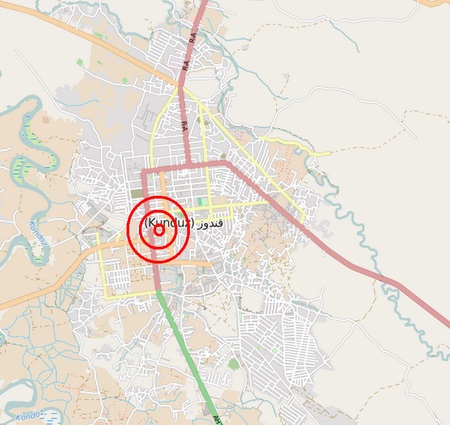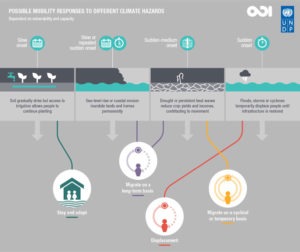
In an interview with NPR, Jonathan Whittall described the extent of the recent bombings of hospitals in Syria:
In Syria last year alone, we had 63 MSF-supported facilities that were hit. This year, 11 facilities that we’ve been supporting have been hit. Estimates of around 23 medical staff have been killed in those various strikes. So we’re dealing with a huge problem when it comes to protection of the medical mission—the ability to operate in these kinds of environments. But there’s two things at stake here. One is in the case where medical facilities are being directly targeted. And in those incidents, what we’re seeing is a kind of criminalization of the enemy, the enemy being regarded as terrorists or criminals and, by extension, the medical facilities at which they seek treatment are being targeted so they kind of—the doctor of your enemy is becoming the enemy as well. And that’s a huge problem because, for medical workers, we don’t distinguish who walked through our front gates, and neither should we. Our responsibility is to provide treatment to whoever needs it and whoever they are. And then, the second kind of issue that we’re seeing is an indiscriminate total war, recklessness in the conduct of hostilities and a complete disregard for civilian life, where not only hospitals are being hit, but schools, bakeries, weddings, all sorts of civilian sites and structures. And this is a huge problem as well. And so the attacks on the medical facilities are indicative and representative of a much bigger disregard for civilian life.
But as we know, the problem is far more widespread, as this story about the recent findings of the Pentagon on the U.S. bombing of a hospital in Kunduz, Afghanistan, indicates. Is it acceptable to accept these kinds of incidents as the unfortunate and unavoidable costs of war?
Dr. Joanne Liu, current International President of Médecins Sans Frontières (Doctors without Borders), is a Canadian by birth, a pediatrician and professor of medicine at the University of Montreal by profession, and nationless as a leader. The UN Security Council’s five permanent members to whom she spoke show more concern about the boundaries of their real estate than the people living within them.
Much of the media coverage of Joanne Liu’s address on May 3rd was picked up from Reuters reporters Michelle Nichols and Louis Charbonneau. For NPQ, Dr. Liu’s remarks are breaking news and, sadly, old news.
The ancient rules of war, updated in 1864 with the first of four Geneva Convention treaties, regard murder as a crime. The U.S. War Crimes Act of 1996 updated the federal criminal code “to provide that anyone, whether inside or outside the United States, who commits a grave breach of the Geneva conventions, where the person who commits such breach or the victim of such breach is a member of the U.S. armed forces or a U.S. national, shall be fined or imprisoned for life or any term of years, or both, or, if death results to the victim, be subject to the death penalty.”
When the UN Security Council adopted the resolution to merely remind the world’s nations to adhere to the existing rules of war, Secretary General Ban Ki-moon referred to the practice of bombing hospitals as “shameful.” Dr. Liu reminded the world’s powers that what they have done is something far worse:
Sign up for our free newsletters
Subscribe to NPQ's newsletters to have our top stories delivered directly to your inbox.
By signing up, you agree to our privacy policy and terms of use, and to receive messages from NPQ and our partners.
Last Wednesday, airstrikes obliterated Al Quds Hospital in Aleppo. They blew apart at least 50 men, women and children. It killed one of the last remaining pediatricians in the city. A murderous airstrike. There were almost 300 airstrikes in Aleppo over the last 10 days. Civilians, often in crowds, were repeatedly struck. What are individuals in wars today? Expendable commodities, dead or alive. Patients and doctors are legitimate targets. Women, children, the sick, the wounded and their caregivers, are condemned to death.
Elsewhere, a Saudi-led military coalition bombed a hospital in Yemen. Robert Koehler provides this May 5th update in Common Dreams to NPQ’s report on the American bombing of the MSF hospital in Kunduz:
A total of 211 shells hit the hospital. The Intensive Care Unit was wiped out. Every patient in the unit except for a 3-year-old girl was killed, some burning to death in their beds. A total of 42 people—patients, staff and doctors—died because of this lethal mistake.
“Our colleagues didn’t die peacefully like in the movies,” [Dr. Kathleen Thomas, MSF doctor] wrote last month in the Guardian. “They died painfully, slowly, some of them screaming out for help that never came, alone and terrified, knowing the extent of their own injuries and aware of their impending death. Countless other staff and patients were injured; limbs blown off, shrapnel rocketed through them, burns, pressure-wave injuries of the lungs, eyes and ears. Many of these injuries have left permanent disability. It was a scene of nightmarish horror that will be forever etched in my mind.”
Some mistake.
This is all news again, of course, because the U.S. government, having investigated the incident, has just released a 3,000-page, mostly classified report, uh, exonerating itself. This comes as no surprise.
In the critically acclaimed film Eye in the Sky, Helen Mirren plays a UK military officer in command of a drone operation who gets herself mired in an international dispute when a nine-year-old girl wanders into the kill zone. MSF’s Dr. Kathleen Thomas might describe this tidy film as propaganda for the United Nations.—James Schaffer













